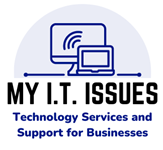In today’s fast-paced, digital-first business environment, agility, collaboration, and secure access to data are essential. Many organizations are still relying on traditional local file servers or Network Attached Storage (NAS) systems to manage their documents and files. While these solutions were effective in the past, they now fall short in a world where hybrid and remote work have become the norm.
Enter Microsoft SharePoint and OneDrive — two cloud-based solutions that provide a modern, flexible, and secure way to manage and share files. Here’s why making the shift from local servers or NAS to SharePoint and OneDrive is not just beneficial, but strategic.
Anywhere, Anytime Access
Traditional Servers/NAS: Access is limited to the office network, requiring VPNs or remote desktop solutions for offsite work.
SharePoint & OneDrive: Access your files securely from any device, anywhere in the world. Whether you’re on a laptop, tablet, or phone, your data is always at your fingertips — no VPN required.
Real-Time Collaboration
Traditional Servers/NAS: Only one person can work on a document at a time. Versioning is manual, often resulting in conflicts and confusion.
SharePoint & OneDrive: Multiple users can work on the same document simultaneously in real-time using Office apps like Word, Excel, and PowerPoint. Changes are auto-saved and version history is maintained effortlessly.
Improved Security and Compliance
Traditional Servers/NAS: Security is often reliant on physical location and network configuration. Compliance is manual and harder to audit.
SharePoint & OneDrive: Built-in enterprise-grade security features like data encryption, conditional access, sensitivity labels, and compliance controls help meet regulatory requirements more easily. You also get detailed audit logs and file access controls.
Automatic Backup and Disaster Recovery
Traditional Servers/NAS: Backups must be managed manually, and recovery can be slow or incomplete in case of hardware failure or ransomware attacks.
SharePoint & OneDrive: Files are backed up in the cloud automatically. If something goes wrong, you can easily restore previous versions or even recover deleted files up to 93 days later.
Scalability and Cost Efficiency
Traditional Servers/NAS: Scaling requires hardware purchases, setup time, and ongoing maintenance.
SharePoint & OneDrive: Scale effortlessly with your organization’s needs. No hardware, no maintenance, and predictable subscription pricing — reducing both capital and operational expenses.
Seamless Integration with Microsoft 365
Traditional Servers/NAS: Limited or no integration with productivity tools; collaboration is often disjointed.
SharePoint & OneDrive: Deep integration with Teams, Outlook, and the entire Microsoft 365 suite makes collaboration smoother and more intuitive.
Simplified IT Management
Traditional Servers/NAS: IT must manage physical infrastructure, software updates, and user access manually.
SharePoint & OneDrive: Centralized cloud management simplifies provisioning, user permissions, and updates — freeing IT to focus on higher-value initiatives.
While traditional file servers and NAS devices may still have a role in certain legacy environments, the benefits of SharePoint and OneDrive make a compelling case for modernizing your file management strategy. From improved security and collaboration to reduced overhead and increased agility, moving to the cloud is not just a trend — it’s a competitive advantage.
Ready to upgrade your file storage? Consider making the switch to SharePoint and OneDrive — and unlock the full potential of modern collaboration – Contact Us now.
